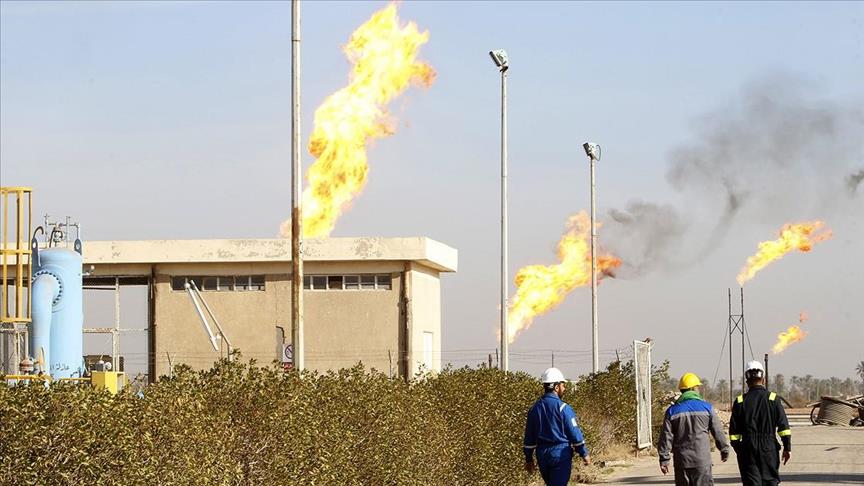Turkey is keen to change the old-fashioned long-term gas contract terms in negotiations for renewed contracts with Russia’s Gazprom, Azerbaijan and Iran when they expire in the 2020s, the first of which at 16 billion cubic meters per year is due in 2021, a study by Oxford Institute for Energy Studies (OIES) disclosed on Wednesday.
Gulmira Rzayeva, a research associate at OIES said in the report that Turkey’s current natural gas strategy is timely and coincides with the expiration of all long-term contracts (LTCs) with the pipeline suppliers in the 2020s.
In 2021 alone,16 billion cubic meters (bcm) per year of LTCs will expire, of which 8 bcm comes from Gazprom. Turkey’s state-owned crude oil and natural gas pipelines and trading company, BOTAS imports half of these while seven private sector importers take the other half.
Rzayeva said she expects that 2021 will be crucial in terms of market restructuring, with new contracts having more flexible and competitive terms, as has long been anticipated.
"Gazprom has already suffered from the situation of low spot gas prices and decreasing sales volumes as a result of demand stagnation; it has already lost 30% of the Turkish market share since 2017," Rzayeva said.
She noted that natural gas prices in Turkey do not reflect pure economic market fundamentals, and therefore necessitate a change towards short and mid-term contracts, gas-to-gas indexation and flexibility in contractual terms.
The expert underlined that Turkey can be confident in adopting an assertive position in negotiations with Gazprom and other suppliers because it has significantly strengthened its position thanks to the strategy of doubling the daily entry-point gas send-out capacity.
This has included increasing LNG import capacity but also decreasing import demand by significantly increasing the share of domestically-produced energy such as coal, lignite, wind, solar, and hydro.
According to Rzayeva, Turkey’s self-sufficiency energy goal of domestically producing electricity from local and renewable sources annually will help wean it off natural gas import dependence and inflexible LTCS.
This policy has borne fruit, and the country has produced 66% of its electricity from local and renewable resources in the first five months of 2020, and 62.08% from January through July this year, according to data from the Energy and Natural Resources Ministry.
"Turkey is approaching its goal of producing almost 66% of its electricity from local and renewable sources annually, thereby reaping the fruits of long-term investments in renewable energy deployment. May 20th was a historic day because 94% of the country’s electricity was generated from domestic sources," she said.
She added that Turkey’s gas market will inevitably transition away from traditional LTCs linked to oil product prices, which she argued has already started with the high level of spot-gas price indexation in short term spot LNG contracts
- Options to receive hub price
Rzayeva said for Turkey to develop its own hub/market price, it would need BOTAS, the dominant player in the market, to strengthen links with European market hubs.
However, she advised that this is conditional, as ”… for that to happen, it would need to be credible that BOTAS would refuse to purchase any pipeline gas at any price above Dutch TTF price, as long as it can obtain all of its gas needs through LNG at that price. Although this has happened with the TTF-related price for LNG, it is highly unlikely that it can act to force European market prices to be adopted for the whole of the Turkish market."
Rzayeva offered another option in developing pipeline connections through reverse flows on the Malkoclar-Stradja2 pipeline, the Turkey-Greece pipeline, the Trans-Anatolian Natural Gas Pipeline (TANAP) and TurkStream, all of which would allow Turkish buyers to access pipeline gas from the rest of Europe at hub prices.
According to Rzayeva, this option would force pipeline gas suppliers to accept European hub prices for their gas in long-term contracts, but probably only after a major legal/contractual fight.
She also advised that as long as the market is not liberalized with the absence of national or regional liquid trading hubs, any changes in long-term contract terms would not adequately reflect market dynamics.
"The government/BOTAS does not want to liberalize the gas market but it wants the benefits of market liberalization: these aims cannot be reconciled," she underlined.
Rzayeva said that given the current Turkish natural gas conditions, real liberalization can only be achieved by the implementation of the provisions of Natural Gas Market Law (NGML) to allow more favorable market prices.
"Although the government is under time pressure to achieve these objectives before the LTCs expire, it will not be possible to fully liberalize the market in the short term," she said.
According to Rzayeva, BOTAS may conclude a short-term contract based on current market prices with Gazprom and Shah Deniz-1 next year using its access to cheaper LNG. But she said it will have to fully liberalize the market gradually by the end of 2020s when all its LTCs with pipeline suppliers expire, leaving aside political and strategic considerations and driven by pure economic logic.
She said that the alternative option for accessing European market hubs via LNG and possibly pipeline gas, and for BOTAS to be prepared to go fully towards spot gas purchase, would contradict the Natural Gas Market Law, which envisages a reduction of BOTAS’s market share to 20% of total gas consumption.
"This can be achieved. The government has adopted a new law on spot pipeline gas imports/exports by private companies. However, again, success is directly linked to market liberalization and will not be possible without private company access to import/export infrastructure, which will catalyze significant changes in market structure," she concluded.
By Murat Temizer
Anadolu Agency
energy@aa.com.tr


